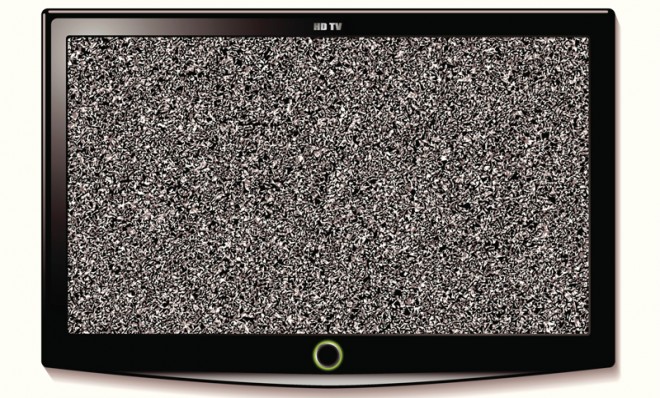Can Time Warner Cable block Intel's internet cable plan?
Everyone's favorite company is allegedly fighting hard to guard its content

A free daily email with the biggest news stories of the day – and the best features from TheWeek.com
You are now subscribed
Your newsletter sign-up was successful
As Intel prepares for the launch of its cable internet service — the one that could potentially change the way we watch television forever — cable companies, particularly Time Warner, are allegedly strategizing to guard their programming, in attempts to block the new player out of the game.
What exactly is Intel's plan? By the end of 2013, the company wants to offer curated bundles of cable channels that customers can stream over the internet through a set-top box. The bundles are supposed to be smaller than regular cable packages, and in what might be the service's defining feature, viewers will be able to skip over commercials (though probably not on the first viewing).
Time Warner Cable, along with other cable companies, is reportedly strategizing to block the technology by offering content providers incentives, like more money, to exclude Intel. Sources told Bloomberg that Time Warner has also threatened to drop programming of networks who agree to work with Intel. "The exclusivity clause would effectively shut out internet-based distributors, by forcing cable networks to choose between having their channels carried by TWC, the second-biggest cable operator in the U.S. or an upstart online service like the one Intel is developing," said Todd Spangler at Variety.
The Week
Escape your echo chamber. Get the facts behind the news, plus analysis from multiple perspectives.

Sign up for The Week's Free Newsletters
From our morning news briefing to a weekly Good News Newsletter, get the best of The Week delivered directly to your inbox.
From our morning news briefing to a weekly Good News Newsletter, get the best of The Week delivered directly to your inbox.
Richard Greenfield of BTIG Research suggested that the FTC investigate the cable companies' alleged incentivizing practices. Though he doesn't name a specific cable provider, Greenfield says the contract provision that bars networks from selling content to internet providers "appears to run counter to the spirit of Section 628(a) of the Communications Act and would appear to impair the growth of new multichannel competition."
Even if it's technically legal, he added, "it most certainly is bad for consumers, as it limits competition and prevents the emergence of distributors who can provide revolutionary new ways of experiencing live linear and on-demand TV without being encumbered by legacy infrastructure."
The cable companies disagree. "It's in everybody's mutual interest that we are protecting the ecosystem in a way that continues to keep the value of that programming that we have and the way it's delivered to our subscribers today," Chris Winfrey, Charter Communications' CFO told Bloomberg.
Time Warner Cable maintains that blocking the encroachment of the internet is a natural part of doing business. "We may well have [contracts] that have that prohibition," that bars media outlets from selling their content to online video providers, Time Warner CEO Glenn Britt said at the National Cable & Telecommunications Association show in Washington Tuesday. "This is not a cookie-cutter kind of business."
A free daily email with the biggest news stories of the day – and the best features from TheWeek.com
Time Warner's PR department, in an email statement, piled on:
It is absurd to suggest that, in today's highly competitive video marketplace, obtaining some level of exclusivity is anticompetitive. Exclusivities and windows are extremely common in the entertainment industry; that's exactly how entertainment companies compete. This is why, for example, you can only watch Fast and Furious 6 in a movie theater (not in your living room), Sunday Ticket on DirecTV and the new Arrested Development episodes on Netflix. [All Things D]
What about the other cable providers? Comcast, for one, when it acquired NBC Universal in 2011, signed a contract prohibiting it from blocking budding internet distributors.
Intel is undeterred by the cable providers' efforts, though, reported The New York Times. The company intends to forge ahead with the internet TV service, and it's even willing to pay more than existing distributors already shell out for the channels — even as much as 75 percent more. Game on.
Carmel Lobello is the business editor at TheWeek.com. Previously, she was an editor at DeathandTaxesMag.com.